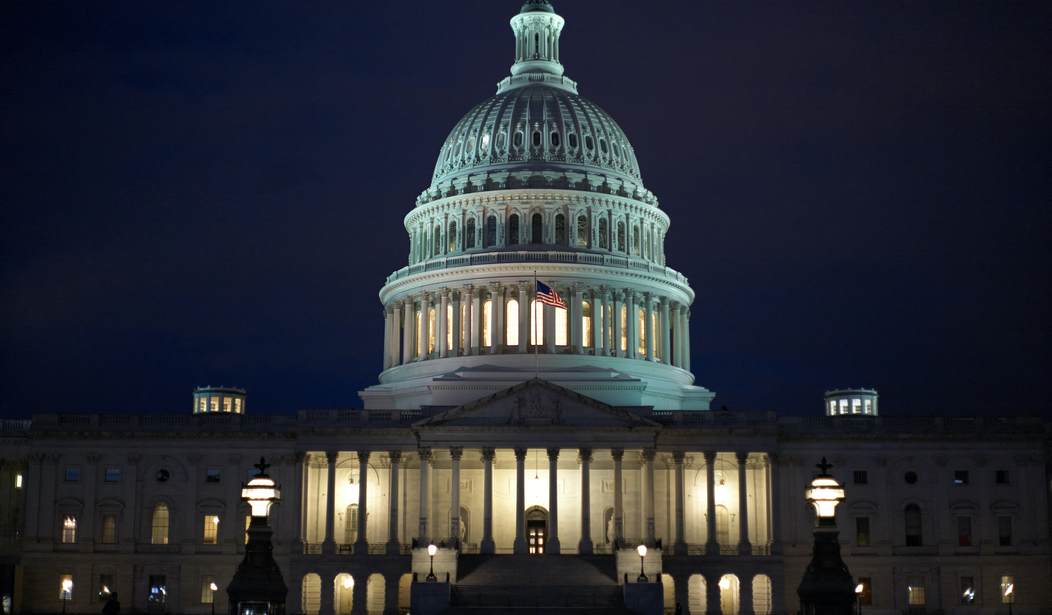For the past several months leading up to the November midterm elections, FiveThirtyEight and Ipsos have been releasing their findings when it comes to what issues matter to Americans. No matter how hard FiveThirtyEight has tried to push the importance of other issues, namely gun violence and abortion, one issue has remained of top importance to respondents.
On Tuesday, FiveThirtyEight released their latest findings in a podcast, "Americans Are Still Most Concerned About Inflation." Did they expect them to worry about anything else with as much importance, especially given that we've experienced the highest inflation in four decades?
Geoffrey Skelley, who has contributed to the write-ups in the past, weighed in to share that not only was inflation yet again the top issue, but to offer his view that "the big news is that the highest percentage we've recorded in any wave... viewed inflation and rising costs as like a top issue facing the country," with this latest wave showing 65 percent of respondents saying as much. Skelley did note that respondents could pick up to three top issues out of the 20 they were asked to choose from.
This number was 54 percent in the last poll release, which Skelley pointed out was "not just straightforward," as respondents could pick multiple issues, "but it does reflect that more people, and the highest percentage that we've had in any wave said that they were worried about that," he offered.
Skelley also offered that these findings aligned with "the shifts I think we saw in news coverage" as it remains more "top of mind" for respondents, especially as Election Day is approaching that much faster. "Inflation has not disappeared as an issue, and if anything, it got worse in the timing of when we were doing this poll."
Recommended
As Skelley made clear during the podcast, there are other issues that "deal with fiscal matters," such unemployment, taxes, and economic inequality, but that inflation is where respondents are really gravitating towards when it comes to economic concerns they may have.
As FiveThirtyEight, and many other polls tried to do, abortion was promoted as an issue over the summer, with the U.S. Supreme Court overturning Roe v. Wade with the Dobbs v. Jackson decision in late June, with the draft opinion indicating as much having leaked in early May. As evidenced by Skelley mentioning abortion as an issue that mattered in the summer, pollsters and the mainstream media are acknowledging what we've been saying all along, that inflation is what matters most to voters.
Galen Druke also raised the point during the podcast wondering if focusing on the economy versus abortion is more of an issue of "messaging, increasingly as we get closer to the election, parties are pulling out their sort of general election messaging, and it's really about the economy, and therefore voters are also feeling it too?"
Skelley weighed in to offer that it could have to do with how Americans aren't experiencing positive changes with the economy, and much comes down to their perception, especially as things haven't gotten better. Druke pointed out in response how polls also show pessimism about the future, including and especially on the economy.
While Druke may have made a thoughtful point, Democrats, including President Joe Biden himself, still continue to make abortion a priority. Perhaps that's why the momentum is on the Republican Party's side a week out from the midterms.
Ipsos also produced a write-up on the findings of a poll with Reuters, with a similar but also more in-depth headline, "Americans continue to feel economic pressure with inflation remaining top issue."
As has been the case with many past releases, the issue of abortion is still nevertheless thrust to the top, in the sub headline as well as via a chart before detailed findings, which did address economic concerns.
When it comes to ranking the 16 issues by level of importance, which includes "other" and "don't know," abortion is tied for a distant third. "Inflation/rising prices" comes in first with a whopping 31 percent of respondents saying it's the most important issue, followed by the "economy, unemployment, and jobs" at 15 percent. "Abortion or changing abortion laws" and "gun violence/mass shootings" come in as the third most important issue, at 7 percent each.
The write-up from Ipsos did nevertheless address inflation and the economy as part of their "detailed findings" from the poll. "Americans continue to feel economic pressure with nearly half viewing rising costs or the economy as the top issues for the United States," Ipsos' write-up notes. Again, that's pretty obvious. Polls have indicated as much for months, just as they've indicated Republicans have an edge on those issues.
Speaking of that edge, Galen Druke acknowledged during the FiveThirtyEight podcast that voters do trust Republicans more on the economy.
The detailed findings from the Reuters/Ipsos poll get worse for Democrats and better for Republicans from there, as inflation and the economy are shown to be truly the most important issues. For respondents were asked about the importance of issues another way, "what is the issue that will most influence your choice of political candidate in the upcoming November midterm elections?"
"Inflation/rising prices" still came in on top, at 29 percent, while "the U.S. economy" was in second place at 17 percent. Abortion was again in third place, as 8 percent said "the end of national abortion rights."
Other findings that don't bode well for Democrats include how just 22 percent of respondents believe that "Democrats have been able to accomplish most of their objectives in 2021 and 2022."
Further, when asked about their "personal situation," 75 percent of respondents chose said that "a continued rise in prices" was "most concerning" to them.
Respondents were also asked about what they thought "the root cause of the rise in prices for goods and services" was. A plurality, at 33 percent, chose "supply chain/economic issues related to the pandemic," but a close second was the 30 percent who chose "spending by the federal government." Just 15 percent chose "the war in Ukraine," which Biden and the administration overall have been pushing ever since Russia invaded Ukraine in late February. That's pretty much evenly split with the 14 percent who said they "don't know."
This poll was conducted October 18-24, with 4,413 adults and a credibility interval of plus or minus 1.8 percentage points.
























